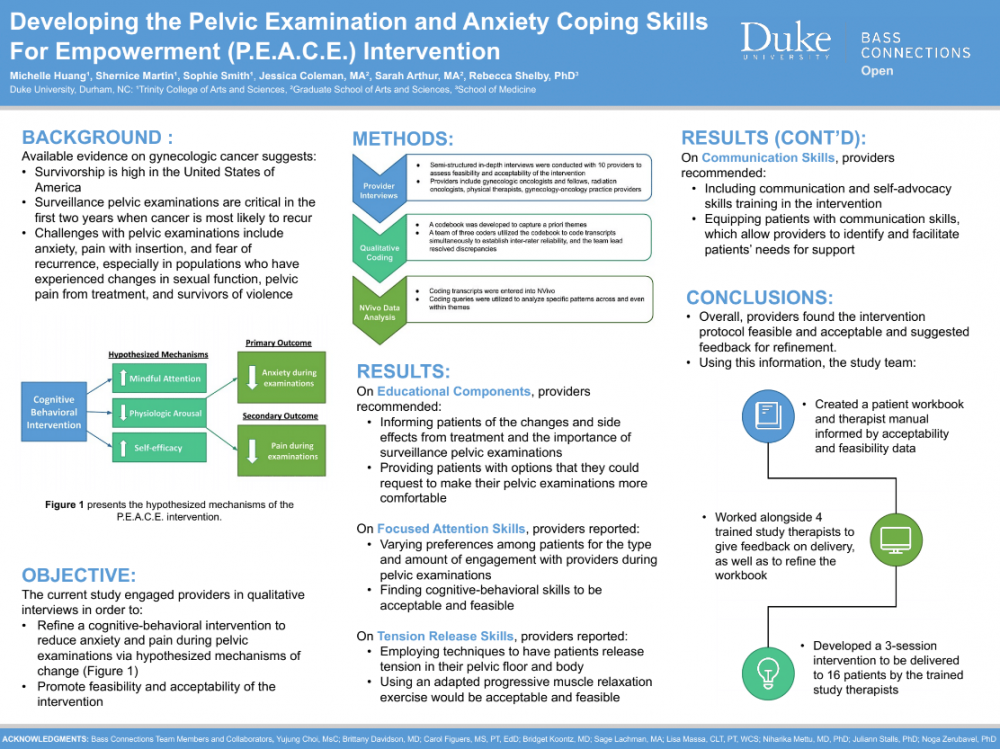Interventions to Ease the Burden of Gynecologic Cancer
Project Team
In 2020, more than 156,000 new cases of gynecologic, bladder, rectal and anal cancers were diagnosed among women in the United States. While survivorship is high, women frequently experience devastating and long-lasting side effects of treatment. Surveillance pelvic examinations are critical in the first two years when gynecologic cancer is most likely to recur, but patients can face significant anxiety and pain during these exams, especially those who have experienced changes in sexual function or pelvic pain from treatment and survivors of violence.
This team interviewed oncology care providers in order to improve methods to reduce anxiety and pain during surveillance pelvic examinations. Specifically, they studied cognitive behavioral interventions, which might include educational components along with focused attention, tension release and communication skills. Using the findings from these interviews, the team then created a patient workbook and therapist manual and developed a three-session intervention to be delivered to patients by the trained study therapists.
Developing the Pelvic Examination and Anxiety Coping Skills for Empowerment (P.E.A.C.E.) Intervention
Poster by Michelle Huang, Shernice Martin, Sophie Smith, Jessica Coleman, Sarah Arthur and Rebecca Shelby

